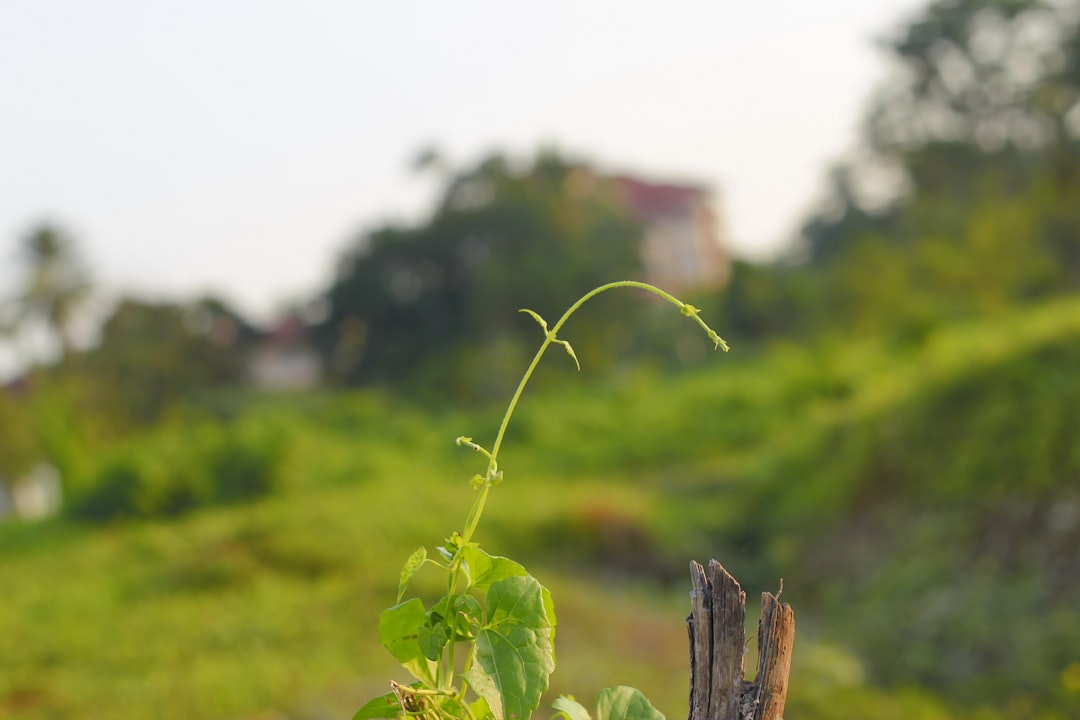Even, Easy, and Effortless
On Patience as a Missing Ingredient

“If it takes that much effort, you’re probably doing it wrong”
I whispered that little nugget to my daughter at the kitchen counter after waking to her frustrating groans. In her mind, she was buttering toast. In reality, I was witnessing attempted murder. The murder weapons? A butter knife and a stick of butter, cold and hard. And there’s my daughter, suffocating this poor piece of Nature’s Own Honey Wheat, sweetly minding his business.
I whisper the words again:
Sweetheart, if it takes that much effort…you’re probably doing it wrong!
Now, she’s lifting her gaze off that mangled piece of bread and aims it in my direction. As her face curls into a question mark, I see her mind working…and working…and working. She can’t understand where she went wrong. Why isn’t this working? She gathers her stare and places it back on the active crime scene. She’s checking off the ingredients in her head.
Bread? Check.
Butter? Check.
Knife? Check.
Why isn’t this working? Why is this so difficult? I have everything I need. What am I missing?
I can tell she’s running through this checklist in her head, trying to remember what ingredient she forgot. Her eyes abandon her failed breakfast attempt as they follow my voice.
As I sit down, my words fall on her ears a third time,
“If it takes that much effort to spread the butter on the bread, you’re probably doing it wrong.”
By now, the top corner of the stick of butter was melting—in a race with itself to try and reach the plate it was sitting on. I took the knife from her hands, caught a stream of the melted butter on its descent, and spread it evenly, easily, and effortlessly on a new piece of bread.
Between breakfast bites, we discuss what she left off her checklist.
Her missing ingredient?
Patience.
On the Good of Patience
Lately, I’ve been thinking a lot about patience. It’s actually the subject (or object—not quite sure which one to use here) of my dissertation. Examining practices of storytelling to cultivate the virtue of patience in those waiting & working for social change during the Civil Rights Movement in the US & the Civil War in Nigeria. (More on the intersection of those worlds in the newsletter next week)
I started having these thoughts somewhere in the whirlwind of 2016-2020. For obvious reasons, everyone everywhere (both online and IRL) was talking about the necessity of working for social change. Which was such an encouragement. However, as the conversations went on, I noticed how many of the conversations were merely outlining processes. The steps that one needed to take to get to the desired end. In all of the conversations, columns, and conjecturing, I couldn’t help but to feel like there was an ingredient missing.
How To books became bestsellers and flew off the shelves. Early on, I saw these waves of activity threaten to tear down these century-long standing walls of injustice. I use the word threaten very intentionally because those waves of activity quickly transformed into calm seas of apathy when we realized change scoffed at punctuality. Change was delayed, and people gathered up their passion and dispersed.
At that point, I realized the problem wasn’t HOW TO but WHO ARE?
We need plans to bring out change. The process can’t be improvised. But more important than creating plans is cultivating the type of people WHO WILL endure. The type of people WHO ARE patient enough to outlast, out live, and out love the opposition.
In other words, CULTIVATING PERSEVERANCE > CREATING PROCESS. (At least that’s how I want to use these words). Helping us love patience: The forgotten virtue behind the world’s most memorable movements.
I’ve noticed that those who work most tirelessly for change are those who begin the work without the expectation they’ll ever sit in the shade of the oak trees of righteousness they plant.
They have the missing ingredient.
Patience.
They embody humble confidence.
A non-anxious presence.
An unhurried urgency.
An un-frantic focus.
How much of our frustration is rooted in our own impatience?
How many life-changing projects have we given up on because of a lack of patience?
How many relationships have we smothered because we’ve been unwilling to wait for change?
How many relationships have we murdered because the effort of trying to change people has left us exhausted? Our exhaustion has led us to some bad math. Once we realize the TRUTH that WE CAN’T CHANGE PEOPLE, we conclude THEY’LL NEVER CHANGE.
WE CAN’T CHANGE PEOPLE = THEY’LL NEVER CHANGE || (WRONG)
WE CAN’T CHANGE PEOPLE ≠ THEY"LL NEVER CHANGE || (RIGHT)\
BRICK LAYING vs. PLANT GROWING
The process of change isn’t brick-laying; it’s plant-growing.
You can throw money, effort, people, and resources into building construction. The more you throw at it, the quicker change happens. The height of the building grows in proportion to the resources deposited. A hole in the ground can quickly become a skyscraper if you invest enough resources in the project.

Tree growing doesn’t work like that. Plant a seed and throw all the water and sunlight on it that you want, and it will grow on its timetable. Not yours. What’s worse is not just that it won’t grow faster, but all of that effort might be the very cause of its death. You can drown a seed with all of that “effort.” Trees grow when seeds are left in the ground, given the right amount of water and sunlight, and then left alone.
Change of this kind will only happen through people who possess the missing ingredient.
Patience.
If it takes that much effort, you’re probably doing it wrong.
Give it your all.
Then give it time.
You’ll be surprised how evenly, easily, and effortlessly it spreads.
Have you noticed this to be the case in anything you’re working on?



This line captures the last few years so well: “Those waves of activity quickly transformed into calm seas of apathy when we realized change scoffed at punctuality.” This article was a helpful reminder for me that shifting the narratives people believe about the past and present can’t be done in the microwave our culture demands. Thank you for the push to cultivate patience.
Growing plants really helps me to cultivate patience. This was such a good read. I always take away food for thought and growth.